Don’t let disruptive behavior rob you of one more day. Sierra Tucson can provide you with the personalized treatment you need so that you can live the healthier life you deserve. Learn more about our comprehensive services in Tucson, Arizona.
Learn More About Disruptive Behavior Treatment
Learn more about disruptive behavior treatment at Sierra Tucson
There are many negative behaviors that can cause significant upset in the lives of the individuals who engage in them, as well as in the lives of those around them. Some of these behaviors go beyond simply acting out, and meet criteria for a disruptive, impulse-control, or conduct disorder.
The fifth edition of the Diagnostic and Statistical Manual of Mental Disorders (DSM-5) describes various disorders that fit into this particular category. These disorders include oppositional defiant disorder (ODD), intermittent explosive disorder (IED), conduct disorder, pyromania, and kleptomania. Additionally, antisocial personality disorder involves a variety of symptoms that mirror those that are indicative of the previously mentioned disorders.
Suffering from any type of disruptive, impulse-control, or conduct disorder can cause countless deficits and detriments to arise in an individual’s life. Yet, it is important to recognize that there is help available.
Types
Types of disruptive behavior
As was previously mentioned, the DSM-5 has outlined a number of disorders that fall under the category of disruptive, impulse-control, and conduct disorders. The types of behaviors that can manifest when an individual is suffering from these disorders are outlined briefly in the following:
Oppositional defiant disorder: Oppositional defiant disorder, or ODD, is characterized by patterns of argumentative and defiant behaviors, irritable and angry moods, and a pervasive sense of vindictiveness. Those who are suffering from ODD will display these behaviors to the extent that they impact not only their own lives, but the lives of those around them as well.
Intermittent explosive disorder: Intermittent explosive disorder, or IED, is characterized by the presence of recurrent behavioral outbursts that can include verbal aggression and/or physical aggression. Those who are suffering from IED do not participate in such behaviors after a period of premeditation; instead, the behaviors are impulsive, occur in a magnitude that grossly outweighs the severity of the situation and/or trigger that initiated it, and are not engaged with the intention of achieving some form of tangible objective.
Conduct disorder: Conduct disorder is characterized by ongoing and persistent patterns of behavior that blatantly violate the basic rights of others, or that are in defiance of age-appropriate and societal norms or rules. The subsets of conduct disorder include aggression to people and animals, destruction of property, deceitfulness or theft, and serious violation of rules.
Pyromania: Individuals who are suffering from pyromania engage in deliberate acts of fire-setting on a recurrent basis. In order to be diagnosed with pyromania, these individuals must achieve some form of affective arousal prior to committing the act, which is then alleviated once the act has come to fruition. Additionally, those who have pyromania possess an intense fascination with fire and those things related to fire and its uses. Furthermore, those with pyromania do not engage in the fire-setting behaviors in order to achieve a specific objective, such as expressing political ideologies or in an attempt to demonstrate anger or vengeance.
Kleptomania: Individuals who are suffering from kleptomania are incapable of controlling the impulse to steal objects. According to the American Psychiatric Association (APA), the objects that are stolen are not needed for the individual’s personal use, nor will they be used for monetary gain.
Causes and Risk Factors
Causes and risk factors for disruptive behavior
There are a number of causes and risk factors associated with the onset of disruptive, impulse-control, and conduct disorders. Examples of such are briefly explained below:
Genetic: Individuals who possess a family background of disruptive behaviors or disorders, for which disruptive behaviors are characteristic, are at an increased risk for displaying similar behaviors and/or suffering from similar disorders. Additionally, various studies have shown that individuals who have a family history of addiction are more susceptible to experiencing kleptomania. In regards to intermittent explosive disorder, the APA notes that twin studies have demonstrated that there is a substantial genetic influence that can affect the onset of impulsive aggression.
Environmental: The majority of mental health disorders, including those for which disruptive behaviors are symptomatic, are believed to be impacted by certain environmental factors. For example, those with oppositional defiant disorder have been noted as having harsh, inconsistent, or neglectful childhoods. Individuals with intermittent explosive disorder often have a history of having experienced physical and/or emotional trauma during the early years of life. Those who have suffered parental rejection, harsh discipline, physical abuse, sexual abuse, and early institutional living are believed to be at a heightened risk for suffering from conduct disorder, as are those who have parents who engage in criminal behavior, who have experienced peer rejection, or who have been exposed to violence.
Risk Factors:
- Personal history of adjustment disorder
- Experiencing inconsistent living situations during childhood
- Having uninvolved parents or living with caregivers who deliver harsh and/or inconsistent punishments
- Family history of substance use disorders
- Personal history of substance abuse
- Possessing lower-than-average intelligence, predominantly in regards to one’s verbal IQ
- Suffering trauma
- Being the victim of physical, emotional, and/or sexual abuse
- Possessing an inability to appropriately regulate emotions
- Experiencing high levels of emotional reactivity
- Having a significantly low tolerance for frustration
Signs and Symptoms
Signs and symptoms of disruptive behavior
The signs and symptoms that may present in individuals who are suffering from one or more disruptive, impulse-control, or conduct-related disorders can vary from person-to-person based on a number of different factors. Such factors can include one’s age, one’s living environment, and, most predominantly, the specific type of disorder or disorders that one is suffering from. Examples of possible signs and symptoms that may be indicative of the presence of these disorders are outlined in the following, separated by each disorder:
Oppositional defiant disorder:
- Pervasively angry mood
- Pervasively irritable mood
- Easily annoyed
- Resentful
- Often loses temper
- Argues with authority figures
- Makes deliberate efforts to purposely annoy others
- Actively defies rules or refuses to comply with requests
- Blames others for their behaviors
- Spitefulness
- Vindictiveness
Intermittent explosive disorder:
- Verbal aggression
- Physical aggression
- Behavioral outbursts that result in damage and/or destruction to property
- Behavioral outbursts that result in physical injury to others or to animals
- Aggression occurs without provocation
Conduct disorder
- Frequently intimidates, threatens, or bullies others
- Has used a weapon that is capable of inflicting serious harm on others
- Initiates physical fights
- Engages in animal cruelty
- Is physically cruel to people
- Has forced someone to engage in sexual acts against their will
- Deliberately destroys the property of others
- Has set fires with the sole intention of causing significant damage
- Steals
- Acts in a deceitful manner
- Repeatedly and purposefully defies societal and age-appropriate rules and norms
Pyromania
- Engages in deliberate fire-setting behaviors
- Experiences tension and affective arousal before setting fires and then only experiences relief and/or pleasure once the act has been committed
- Places much effort and interest in all things related to fire, including paraphernalia, fire’s uses, and the consequences of setting fires
Kleptomania
- Repeatedly steals objects that are not needed
- Experiences tension before committing the theft, and then only experiences relief from that tension once the act is completed
Types of Treatment
Types of disruptive behavior treatment offered at Sierra Tucson
Regardless of which specific disruptive disorder an individual is suffering from, they will ultimately experience significantly negative effects as a direct result of their behaviors. Everything including one’s social interactions, family life, romantic relationships, and occupational handlings can be negatively impacted by engaging in various disruptive behaviors. While the devastation that can be elicited can seem insurmountable, fortunately, there is help available.
At Sierra Tucson, the best rehab center for disruptive behavior treatment, we recognize the distress that accompanies the presence of disruptive behaviors, and we understand that the inability to control one’s behaviors can cause significant upheaval physically, mentally, and emotionally. As an internationally known and respected provider of treatment for a wide range of concerns, including those related to disruptive behaviors, our treatment center delivers evidence-based practices that are designed to help the individuals in our premier care overcome their negative behaviors, while having the opportunity to practice behavioral and cognitive modification in order to elicit lasting change. Holistic and individualized treatment is cornerstone to the best care offered at our rehab, and the staff of qualified and experienced professionals administers this care by utilizing a dynamic approach to treating patients’ minds, bodies, and spirits.
Individuals who engage in treatment for disruptive, impulse-control, or conduct disorders will have the opportunity to participate in an array of therapeutic experiences and treatment modalities, all of which are designed to set the course for true and lasting healing. Medication management services are available for those who require the implementation of psychotropic medications. Individual therapy provides patients with a safe space to process their treatment experiences and address concerns as they arise. Group therapy offers patients the opportunity to interact with other individuals who may be facing similar challenges, allowing them to give and receive support to and from their peers.
Furthermore, at Sierra Tucson, a premier disruptive behavior treatment center, we pride ourselves in offering a number of experiential and recreational therapy options in order to allow patients to experience healing on a deeper level. Examples of such options include, but are not limited to, the following:
- Art therapy
- Equine therapy
- Yoga
- Reiki
- Movement therapy
- Chi Kung
- Personal training
- Acupuncture
- Massage
- Somatic Experiencing® Therapy (SE)
- Somato-Emotional Release (SER) massage
- Mindfulness meditation
It is the ambition of all of our staff here at our rehab to deliver services in such a manner that all who come to us for treatment will be able to transcend the challenges of the past, and resume the pursuit of a healthy and productive future.
If you or an important person in your life is suffering from a disruptive, impulse-control, or conduct-related disorder, please do not hesitate to contact our treatment center today. Your past does not have to define your future. Let our rehab be the place where your change begins.













